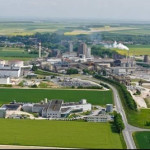Innovations across the entire value pyramid of the biobased economy
Agriculture, with its renewable feedstock, materials, textile fibres, food products and medicinal plants, has been the supplier of mankind with its livelihood for ages. By innovations, agriculture will again take up this role and contribute to the build-up of a … Read more



